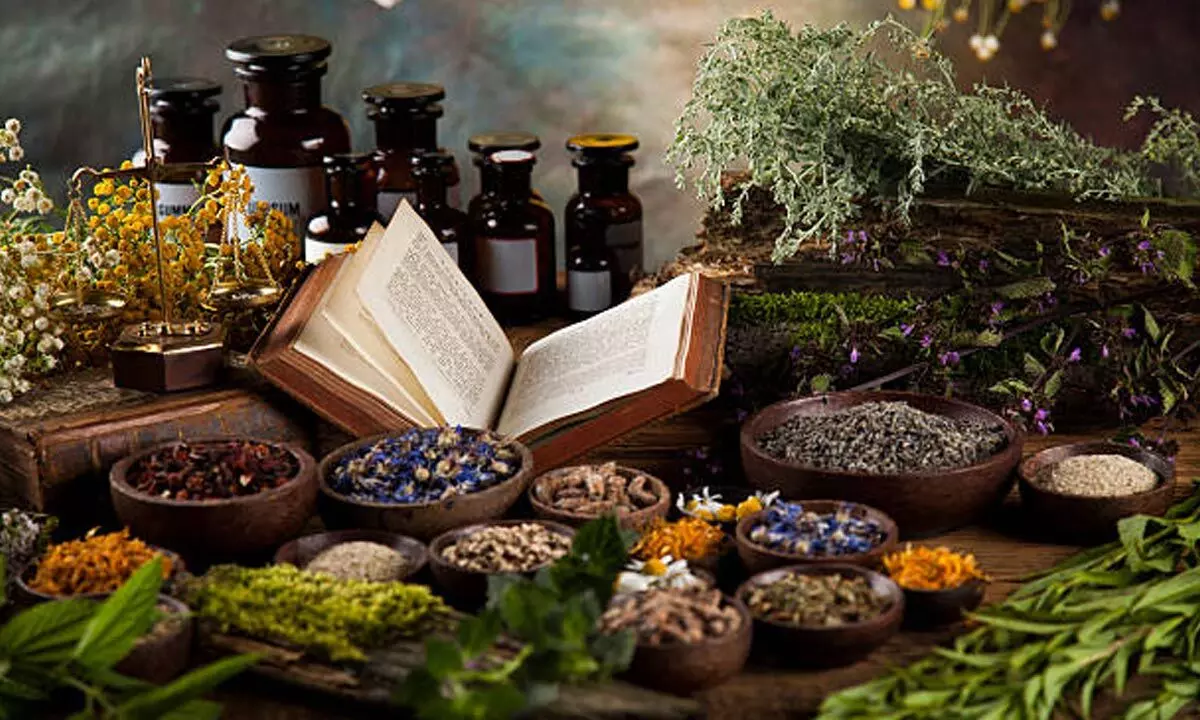GCTM will prove to be a boon for traditional medicine industry
The Global Centre for Traditional Medicine (GCTM) will go a long way in effective integration of ancient sciences into healthcare system which can help in fighting many diseases
image for illustrative purpose

In what can be a major milestone in the area of traditional medicine in the entire world, Prime Minister Narendra Modi on April 19, 2022, has laid the foundation stone for the WHO Global Centre for Traditional Medicine (GCTM) in Jamnagar, Gujarat. Being established by the Union Ministry of Ayush in collaboration with the World Health Organization (WHO), this will be the world's first and the only global centre for traditional medicine which will highlight the potential of traditional medicine and utilize technological advancements to promote its safe and effective use. The primary objective of this global centre, which will have its interim office at the Institute of Training and Research in Ayurveda (ITRA) in Gujarat, is to harness the potential of traditional medicine from across the world through modern science and technology and improve overall health of the communities' world over.
There are no two opinions about the growing global interest in Ayush-based solutions for disease resistance and treatment, including for the treatment of Covid-19. It is an undisputed fact that Ayush products played a significant role in providing the much-needed immunity to the general public to fight the deadly coronavirus disease, which has taken a huge toll across the world, especially in the developed world including the US. The emerging evidence of a correlation between the low Covid-19 mortality rates and large-scale adoption of Ayush prophylactic solutions by the population in India is significant for the public health practice in the country. As the entire world was running amok for a timely solution to fight the deadly virus, the frontline role played by the Ayush sector in the fight against Covid-19 received kudos from one and all.
It is quite true that traditional medicine is a key pillar of healthcare delivery systems and it plays a crucial role in maintaining good health and well-being not only in India but across the world. In recent years, traditional medicine therapies have also seen a major transformation as usage of artificial intelligence and technological innovations have made it more accessible to the masses. In such a backdrop, the establishment of the Global Centre for Traditional Medicine will be a boon to the masses as it aims to integrate the benefits of traditional medicine with the achievements of modern science and create a comprehensive health strategy. This centre will concentrate on building a solid evidence base for policies and standards on traditional medicine practices and products and help countries integrate it as appropriate into their health systems and regulate its quality and safety for optimal and sustainable impact. It will focus on four main strategic areas: evidence and learning; data and analytics; sustainability and equity; and innovation and technology to optimize the contribution of traditional medicine to global health and sustainable development.
This Centre, which will be supported by an investment of about USD 250 million from the government of India, needs huge investment in research and development of traditional medicine to provide holistic healthcare at affordable cost. There should be mobilization of funding for research in the field of traditional medicine just as billions of dollars are available in the research field for modern pharmaceutical companies. The need of the hour is to prepare for research in traditional medicine with the same kind of resources.
Now that a global centre for traditional medicine is becoming a reality, several responsibilities lie with it. First, it has to compile traditional lores, using technology, to create a database of them. There have been different traditions of traditional medicine in different countries. A global collection or repository should be created in this center compiling these traditions. These centres can also make a compilation of these traditions by studying the sources of the scholars of these traditions. It is also necessary to do so, so that important information on traditional medicine, which exists in different countries, continues to help the generations to come. The GCTM should also create international standards for testing and certification of traditional medicines will increase the trust of people in traditional medicines. Even though many of India's traditional medicines are effective, due to the absence of a global standard, their regular trade is limited. Besides, this centre should develop holistic treatment protocols for certain specific diseases in which the patient benefits from both modern and traditional medicine. Of course, this Global Centre for Traditional Medicine will over the years become a platform where experts from the traditional systems of medicine of the world will come together and share their experiences. Definitely, it will go a long way in effective integration of these ancient sciences into a healthcare system which can help in fighting many diseases. In the long run, the centre will surely prove to be a boon for traditional medicine industry in the country.
(The author is freelance journalist with varied experience in different fields)

